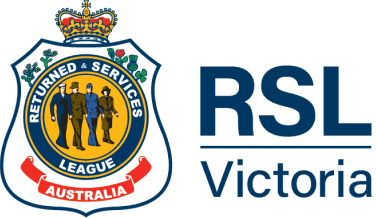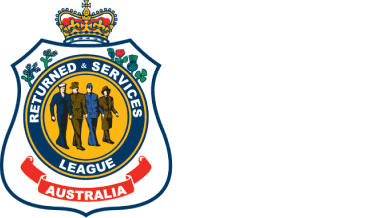When recalling his service in the Korean War, veteran Frederick Lane says that for him and his shipmates, it was no different to having a job to go to.
“We were all volunteers that joined the Navy for a career,” explains Fred. “That’s all it was. We went to work one morning, and we got word that the ship would be going to Korea and we’d be going too.”
Aged just 20, Fred found himself aboard HMAS Sydney III serving as a Pilot’s Mate during what would eventually become known as "The Forgotten War.”
The Korean War began on June 25 1950 when the Communist Korean People’s Army of North Korea invaded the non-communist Republic of Korea in the south, crossing the 38th Parallel which divided the two countries. North Korea’s aim was to conquer the American-backed South Korea using military force, unifying Korea under a communist regime. Within days, Seoul, South Korea's capital, had been captured.
Declaring North Korea the aggressor, the United Nations Security Council set up the United Nations Command (UNC), a collective security force, to support South Korea, before calling for a cessation of hostilities.
Including Australia, twenty-one member nations made up the military force sent to support South Korea. Personnel from the Australian Army, RAAF, and RAN fought as part of the UN multinational force, serving under both British and American operational command.
Ground was both won and lost in the first months of the war. In September 1950, Seoul was recaptured by UN forces before North Korean was pushed back across the 38th parallel. A subsequent advance by UN forces into North Korea sought to unify the country under a non-communist government.
However, the UN’s invasion of North Korea resulted in China’s intervention by the end of 1950. Chinese forces launched an offensive, pushing UN forces back across the 38th parallel in early 1951, taking Seoul in the process. Within months, however, Seoul was again back in UN hands and by late 1951, peace talks were underway. They lasted more than two years.
Perhaps one of the fiercest battles Australians fought in the war was in defence of Kapyong Valley. Chinese forces launched an offensive on UN forces defending Seoul on April 22 1951. The 3rd Battalion, The Royal Australian Regiment (3RAR), along with a Canadian battalion and a New Zealand artillery regiment, fought waves of Chinese fighters on the night of April 23 and during the following day. Their efforts stalled an advancing Chinese Division and prevented the recapture of Seoul.
Australia suffered 32 dead and 59 wounded at Kapyong, with three taken prisoner. Enemy casualties numbered more than 500 killed. 3RAR was awarded a US Presidential Citation for courage and devotion to duty. Despite the scale of this action and the number of Australian dead and wounded, the Battle of Kapyong goes unrecognised by most Australians.
Second World War veteran, Frederick Williams recalled his experiences in Korea in his 2004 interview with the Australians at War Film Archive (AAWFA), “I’d do up to five and six, seven fighting patrols in a week. You’re out half the night each night and nine times out of ten you’d run into trouble…that was the worst battlefield of any ever I’ve encountered.”
For Fred Lane onboard HMAS Sydney III, the bitter cold stands out in his mind seven decades later.
"The pilots were told if they had to ditch in the water the life expectancy in the water was 30 seconds. It was damn cold. We had one day that we couldn’t operate because the flight deck was covered in snow."
Fred Lane
The end of the war came with the signing of an armistice on July 27, 1953. An Australian peacekeeping force remained in Korea until 1957. Tensions between North Korea and South Korea continue to this day with a Demilitarised Zone separating North Korea and South Korea along the 38th parallel.
Of the almost 18,000 Australians who served in the Korean War, including more than 150 nurses, 340 lost their lives. More than 1200 were wounded and 29 Australians became prisoners of war. The battle of Pakchon would the furthest point that Australian personnel reached into North Korea during the war.
July 27 2023 marks the 70th anniversary of the signing of the armistice. Despite Korean Veterans’ Day being held on that date every year, few Australians understand both Australia’s involvement in the war and its impact on those who served. With the war regarded as a “police action” and ending in a stalemate, Australian’s Korean War veterans have been treated with indifference despite suffering the same war wounds as any other who served in uniform.

Veteran Ivan Brumfield explains the feeling of being forgotten during his 2004 interview with the AAWFA, noting that a lack of recognition for Korean War veterans stems from its close proximity to World War Two, which ended in 1945.
"I don’t think it was recognised that we had a very tough war."
Veteran Ivan Brumfield
Allan Evered, Korean War veteran with the British forces and former National Secretary for the Korea Veterans Association of Australia, says he was shocked at the stigma surrounding the Korean War and how Australia’s veterans were treated.
"The Australians when they came back from Korea were very let down. It was harder for Australians when they came back. They really deserve better."
Allan Evered
At a church service marking the ceasefire in 2016, Allan describes one interaction that had a profound impact on him.

“This little boy about six looked up at his father and said, ‘Why are all these people here?’ and his father thought for a moment and said, ‘Without these people, I wouldn’t be here, your family wouldn’t be here, and you wouldn’t be here.’ And that summed it up so wonderfully. What these veterans did is respected and did achieve something.”

